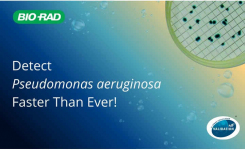The BD MAX MRSA XT assay is now CE marked and available in Europe for use on the BD MAX™ System. The assay uses eXTended detection technology to accurately identify a broad range of methicillin-resistant Staphylococcus aureus (MRSA) strains from nasal swabs in patients who may be colonized with this drug-resistant pathogen. It is the only fully-automated molecular assay for MRSA active surveillance that detects a specific target found in MRSA (MREJ)[i] and drug-resistance genes: mecA and the recently discovered mecC.[ii]
Active surveillance using molecular tests for rapid detection of MRSA is a proven strategy to reduce transmission in healthcare settings and helps to prevent infection in vulnerable patients. Inaccurate detection may contribute to uncontrolled transmission of MRSA and inappropriate use of healthcare resources. With many commercial assays, Staphylococcus aureus strains where the mecA gene is absent (commonly called "dropout mutants") are incorrectly detected as MRSA. These false positive results can lead to unnecessary and expensive isolation as well as patients being over treated.[iii] MRSA strains with the newly discovered mecC gene account for nearly three percent of all new MRSA cases[iv] but cannot be detected by assays that do not detect that gene.[v] These false negative results can lead to uncontrolled transmission of undetected MRSA strains.[vi]
"Assay design is critical to detect MRSA accurately and ensure that appropriate infection control interventions are applied," said Dr. Patrick Murray, Worldwide Director of Scientific Affairs, BD Diagnostics - Diagnostic Systems. "The new BD MAX MRSA XT assay uses eXTended detection technology to detect more MRSA strains, including the mecC gene, and to avoid false positive results due to mecA dropouts." More accurate detection helps prevent transmission of new MRSA strains and can save healthcare costs by focusing infection prevention resources on those patients who are true MRSA carriers.
Other HAI assays available on the BD MAX System include BD MAX™ StaphSR, which detects and differentiates Staphylococcus aureus and MRSA, and BD MAX™ Cdiff, for detection of toxigenic Clostridium difficile. These BD MAX™ HAI Solutions combine efficiency with the flexibility to perform multiple HAI assays in the same run, allowing hospital laboratories to customize testing in response to current and future challenges in the fight against HAIs.
References:
[i] Huletsky et al. J. Clin. Microbiol. 2004;42:1875 "New Real-Time PCR Assay for Rapid Detection of Methicillin-Resistant Staphylococcus aureus Directly from Specimens Containing a Mixture of Staphylococci"
[ii] Laurent et al., Emerging Infectious Disease 2012;18:1465-1467
[iii] Blanc et al., JCM 2011;49:722-724. High Proportion of Wrongly Identified Methicillin-Resistant Staphylococcus aureus Carriers by Use of a Rapid Commercial PCR Assay Due to Presence of Staphylococcal Cassette Chromosome Element Lacking the mecA Gene.
[iv] Petersen et al., Epidemiology of methicillin-resistant Staphylococcus aureus carrying the novel mecC gene in Denmark corroborates a zoonotic reservoir with transmission to humans Clin Micro Infect 2013;19:E16-E22
[v] Shore et al., Antimicrobial Agents and Chemotherapy. 2011;55:3765-3773
[vi] Worby et al., Am J Epidemiology advanced access published online April 16, 2013 reports that undetected MRSA accounts for >75% of uncontrolled transmission.






















